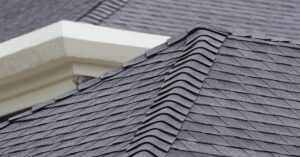Commercial Roofing Systems Installed in Bonita Springs, Fort Myers, Naples, Cape Coral, & Nearby
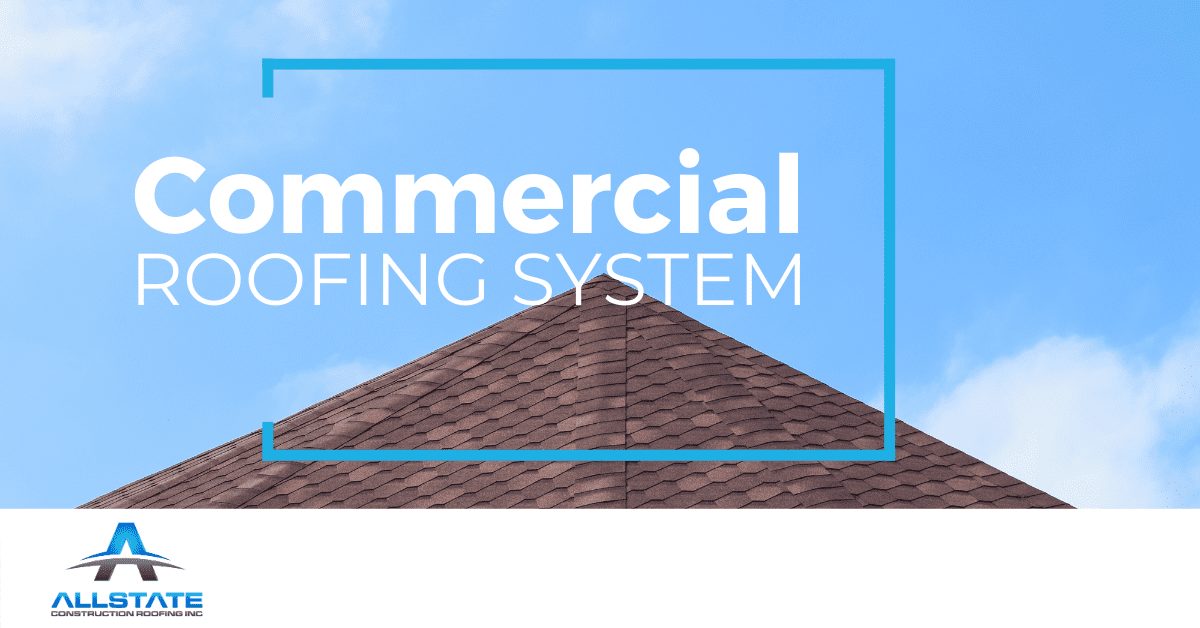
If you’re in the market for a new commercial roofing system, choosing the right product can make all the difference. From installing new commercial roofs to completing a commercial roof repair, the long list of commercial roof types makes it hard to know what to choose for your building.
There is also a number of acronyms used to describe various commercial roofing types including SPF, TPO, EPDM, etc. At Allstate Construction, it’s our job to help you select the right materials to suit your business and budget.
Whether you are just getting started in your due diligence or facing a roofing emergency, we’re here to help you through your commercial roof repair, replacement, or new roof installation. Contact us to schedule a free inspection today! We serve clients in Bonita Springs, Fort Myers, Naples, Cape Coral, and throughout the surrounding area.
Call (239) 307-2939 or contact us online today to request a free, no-obligation inspection.
Free InspectionIf you are in need of commercial roof repair, replacement or new roof installation, contact us to schedule a free inspection today! We provide quality services for commercial roofing systems in Bonita Springs, Fort Myers, Naples, Cape Coral, and throughout the surrounding area.
We Are Experienced in Many Commercial Roof Types, Techniques and Materials
Commercial roofing can get confusing because it can be described by roof type on the building such as a flat roofs, low slope, or shed. Other times, roofing is described by the installation technique itself, like built-up roofing (also known as BUR) or standing-seam roofing and PVC roofing. Roofing can also (most commonly) be described by the installation materials.
Read on to learn more about the pros and cons of 4 common commercial roofing systems types.
Modified Bitumen Roofing
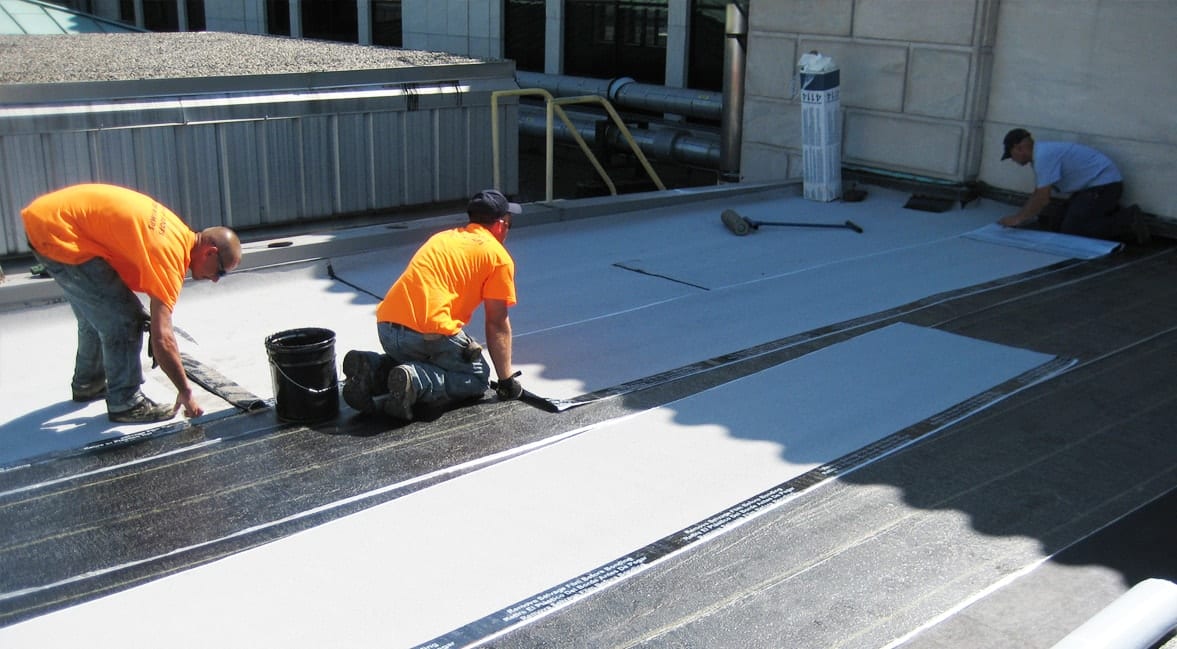
First, let’s cover the basics of Modified Bitumen Roofing, or MB for short is comprised of asphalt and works best for buildings that have a low slope or “flat” roofing deck and structure.
Pros
One positive about this option is that they have a proven record of success since they gained popularity in the mid-1970s. Another strength is their five-layer structure that provides strong protection against leaks, heat, tears, and more.
These structures include:
1. Insulation, which provides temperature stability for the building.
2. Modified base sheets.
3. Modified bitumen membranes. These sheets are manufactured at the factory and are typically reinforced with materials like fiberglass or polyester.
4. Adhesive that serves as a waterproofing function.
5. Surfacing for protection against UV rays and other elements from nature.
In addition to its five-layer strength, bitumen roof systems like MB offer competitive pricing against other types of commercial roofing material. They’re typically installed in rolls, that require a torch to heat up and seal the seams.
Cons
Now for the cons. While MB is a popular choice for all the reasons above, its protective surface layers can’t always stop water from coming through. This depends heavily on a quality installation that includes a proper drainage system. During and after installation, there is often a smell associated with an MB roof, unlike others. Additionally, in comparison to other roofing systems, modified bitumen roofing’s life expectancy is shorter at just 10-20 years.,
Contact us online or call (239) 307-2939 today to get started with a free, no-obligation roof inspection.
EPDM Roofing
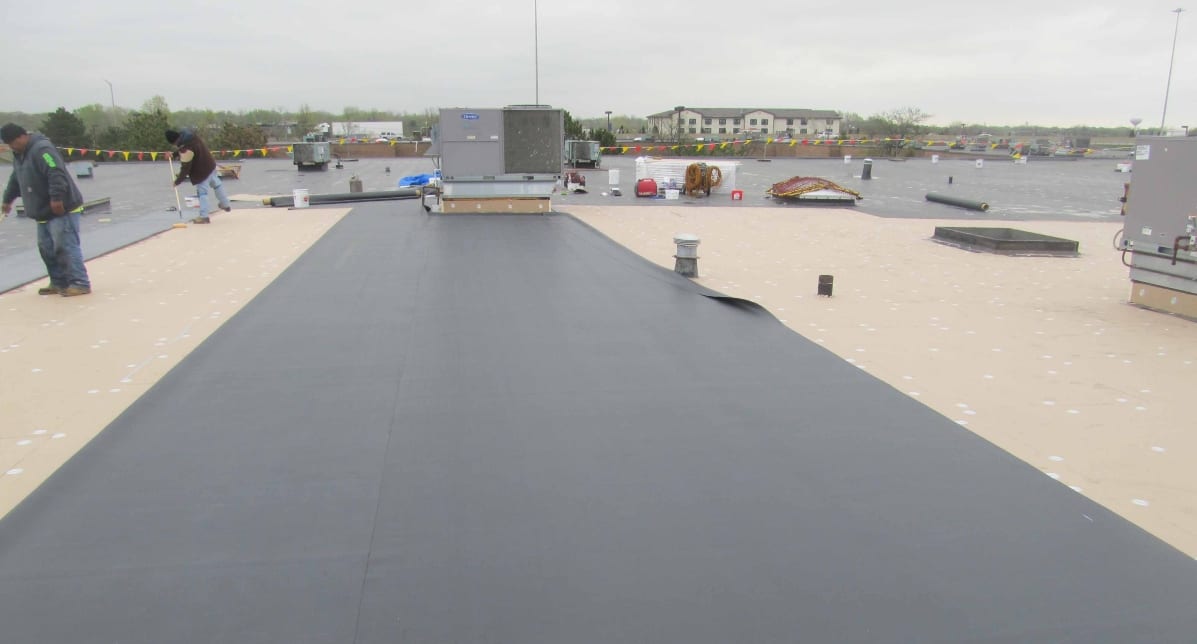
Ethylene Propylene Diene Monomer (or EPDM) is sometimes referred to as rubber roofing because this roofing membrane material is black and flexible like a rubber inner tube. EPDM roofing can be installed on flat roofs and low-slope roofs.
The seams between EPDM sheets and the metal flashing are typically sealed with a special adhesive or solvents. EPDM is made up of a rubber material (single ply) that’s known as being versatile and resistant to ozone.
Pros
EPDM is a very cost-effective solution for commercial roofing projects. And it’s durability means that when properly installed, an EPDM roof can last more than 20 years. EPDM is also considered to be environmentally friendly and easy to install by a professional.
Cons
One of the questions to ask yourself when considering an EPDM roof is the importance of your aesthetic. This roofing option is utilitarian in look and doesn’t allow for much personalization. It also requires a professional and shouldn’t be attempted on your own.
While the rubber materials that go into an EPDM roof are durable, they’re not impervious to puncturing and may not survive well in the case of a severe storm where objects are slammed into the roof at high force.
Contact Allstate Construction Roofing Inc. today to request a free, no-obligation roof inspection for your commercial or residential property in Southwest Florida!
TPO (Thermoplastic Polyolefin) Roofing
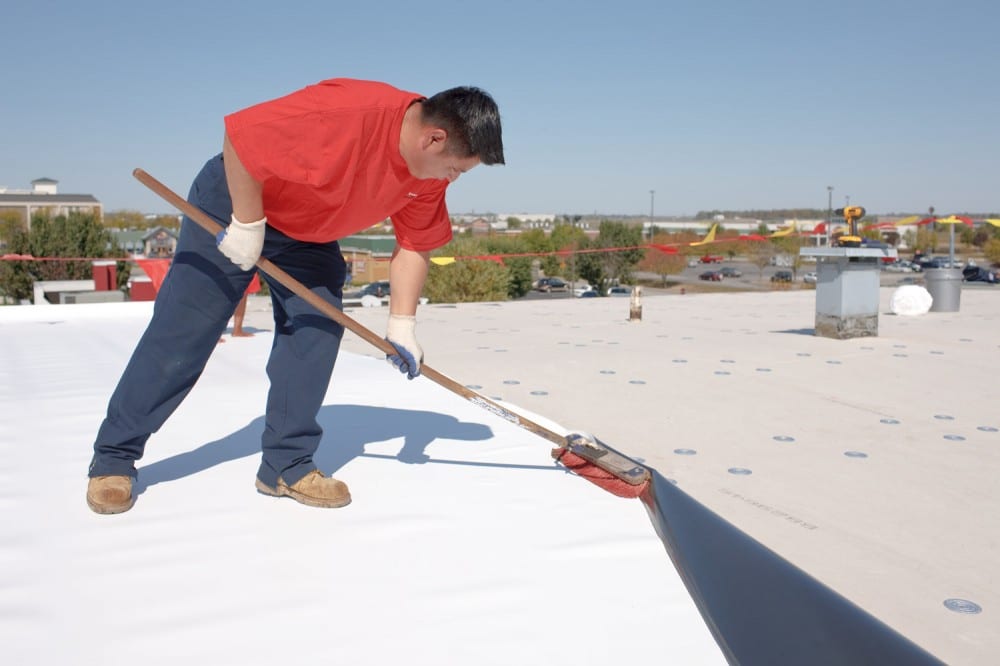
Like EPDM roofing, TPO roofing is a single-membrane roofing system and is installed in large rolls. It can be installed using mechanical fasteners or with heat that fuses the seams together.
Pros
TPO is white in color and does a great job of reflecting the sun. This means TPO roofs are considered very energy efficient. They also are resistant to common problems like mold overgrowth or excessive dirt accumulation and stand up to most impacts well. It is also a cost-effective choice for many consumers.
Cons
Recent shifts by manufacturers require a knowledgeable contractor with extensive experience to help guide any decision. It is also important to know which manufacturer is staying current and has a proven product.
Additionally, if not installed properly, replacing fasteners can be costly and some TPO roof formulations offer only a ten-year warranty.
Contact us online or call (239) 307-2939 today to get started with a free, no-obligation roof inspection.
Asphalt Shingle Roofing
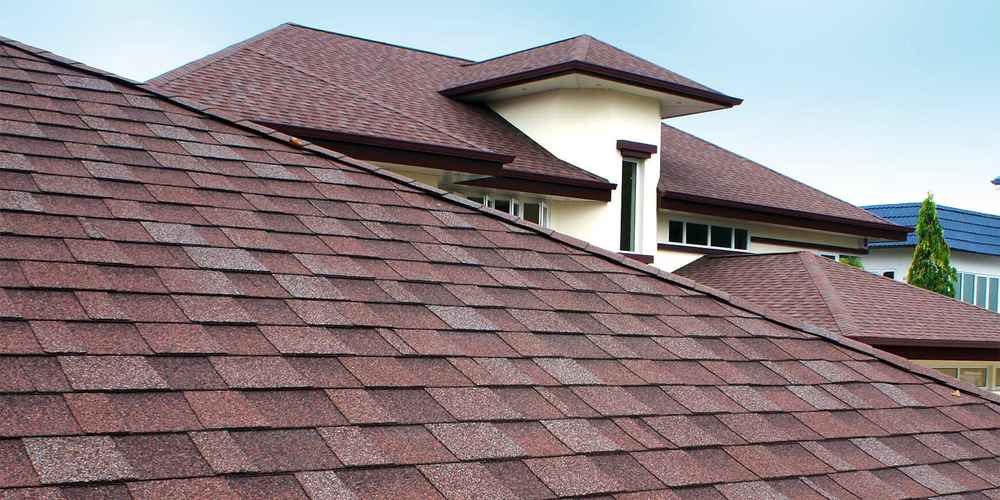
Asphalt shingle roofing is always a popular option that many commercial buildings, especially those with sloped roofs, trust. will always be popular.
Pros
This roofing option is one of the most affordable on the market. Asphalt shingles aren’t as long-lasting as alternative options (like metal or slate) but they deliver effective protection, often for 10-15 years. Asphalt shingles also come in many styles and colors, providing multiple options for business owners.
Cons
The biggest con for these shingles is their inability to survive in extreme weather conditions. They can fade in high heat over time, or experience damage if they’re installed in freezing weather. Dramatic weather changes back and forth can also cause damage.
Asphalt shingle roofing is also not considered to be environmentally friendly.
Call (239) 307-2939 or contact us online today to request a free, no-obligation inspection.
Expert Commercial Roofing Contractors
The expert roofers at Allstate Construction Roofing are trained and certified to work with many different types of commercial roofing systems in Bonita Springs, Fort Myers, Naples, Cape Coral, and nearby. We provide commercial roofing services like roof repair, maintenance, and roof replacement to ensure that your commercial building is properly protected.
Call us at (239) 317-2000 or send us an email to schedule an appointment today!



